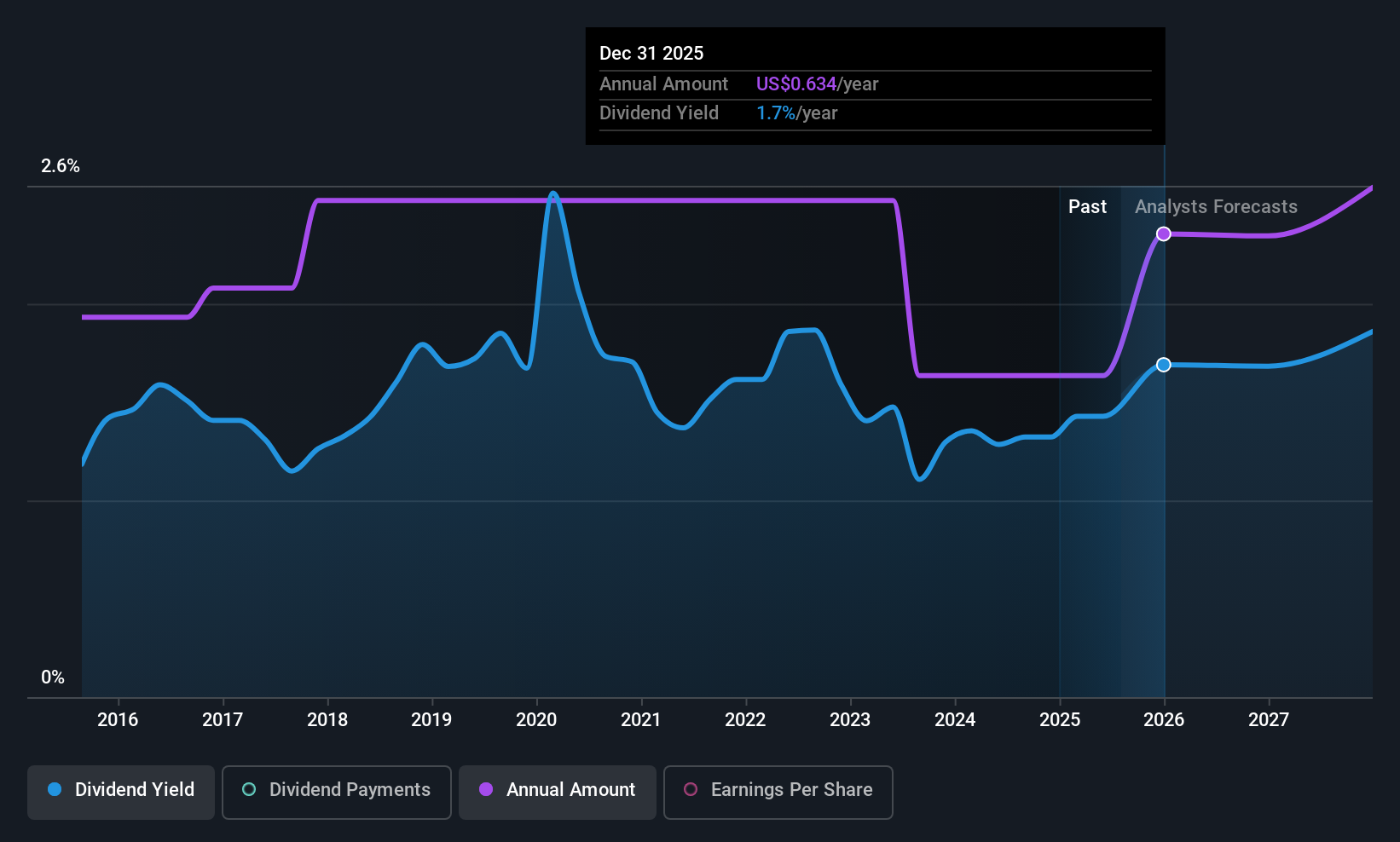BorgWarner (NYSE:BWA) Is Paying Out A Larger Dividend Than Last Year
BorgWarner Inc.'s (NYSE:BWA) dividend will be increasing from last year's payment of the same period to $0.17 on 15th of September. This makes the dividend yield about the same as the industry average at 1.8%.
This technology could replace computers: discover the 20 stocks are working to make quantum computing a reality.
BorgWarner's Payment Could Potentially Have Solid Earnings Coverage
We like to see a healthy dividend yield, but that is only helpful to us if the payment can continue. Based on the last payment, BorgWarner was quite comfortably earning enough to cover the dividend. This means that a large portion of its earnings are being retained to grow the business.
Looking forward, earnings per share is forecast to rise exponentially over the next year. If the dividend extends its recent trend, estimates say the dividend could reach 9.9%, which we would be comfortable to see continuing.

See our latest analysis for BorgWarner
Dividend Volatility
Although the company has a long dividend history, it has been cut at least once in the last 10 years. Since 2015, the dividend has gone from $0.52 total annually to $0.68. This implies that the company grew its distributions at a yearly rate of about 2.7% over that duration. Modest growth in the dividend is good to see, but we think this is offset by historical cuts to the payments. It is hard to live on a dividend income if the company's earnings are not consistent.
Dividend Growth Potential Is Shaky
Growing earnings per share could be a mitigating factor when considering the past fluctuations in the dividend. BorgWarner's EPS has fallen by approximately 14% per year during the past five years. Such rapid declines definitely have the potential to constrain dividend payments if the trend continues into the future. On the bright side, earnings are predicted to gain some ground over the next year, but until this turns into a pattern we wouldn't be feeling too comfortable.
Our Thoughts On BorgWarner's Dividend
In summary, while it's always good to see the dividend being raised, we don't think BorgWarner's payments are rock solid. The company is generating plenty of cash, which could maintain the dividend for a while, but the track record hasn't been great. We don't think BorgWarner is a great stock to add to your portfolio if income is your focus.
Companies possessing a stable dividend policy will likely enjoy greater investor interest than those suffering from a more inconsistent approach. Still, investors need to consider a host of other factors, apart from dividend payments, when analysing a company. As an example, we've identified 4 warning signs for BorgWarner that you should be aware of before investing. If you are a dividend investor, you might also want to look at our curated list of high yield dividend stocks.
Valuation is complex, but we're here to simplify it.
Discover if BorgWarner might be undervalued or overvalued with our detailed analysis, featuring fair value estimates, potential risks, dividends, insider trades, and its financial condition.
Access Free AnalysisHave feedback on this article? Concerned about the content? Get in touch with us directly. Alternatively, email editorial-team (at) simplywallst.com.This article by Simply Wall St is general in nature. We provide commentary based on historical data and analyst forecasts only using an unbiased methodology and our articles are not intended to be financial advice. It does not constitute a recommendation to buy or sell any stock, and does not take account of your objectives, or your financial situation. We aim to bring you long-term focused analysis driven by fundamental data. Note that our analysis may not factor in the latest price-sensitive company announcements or qualitative material. Simply Wall St has no position in any stocks mentioned.
Disclaimer: Investing carries risk. This is not financial advice. The above content should not be regarded as an offer, recommendation, or solicitation on acquiring or disposing of any financial products, any associated discussions, comments, or posts by author or other users should not be considered as such either. It is solely for general information purpose only, which does not consider your own investment objectives, financial situations or needs. TTM assumes no responsibility or warranty for the accuracy and completeness of the information, investors should do their own research and may seek professional advice before investing.
Most Discussed
- 1
- 2
- 3
- 4
- 5
- 6
- 7
- 8
- 9
- 10